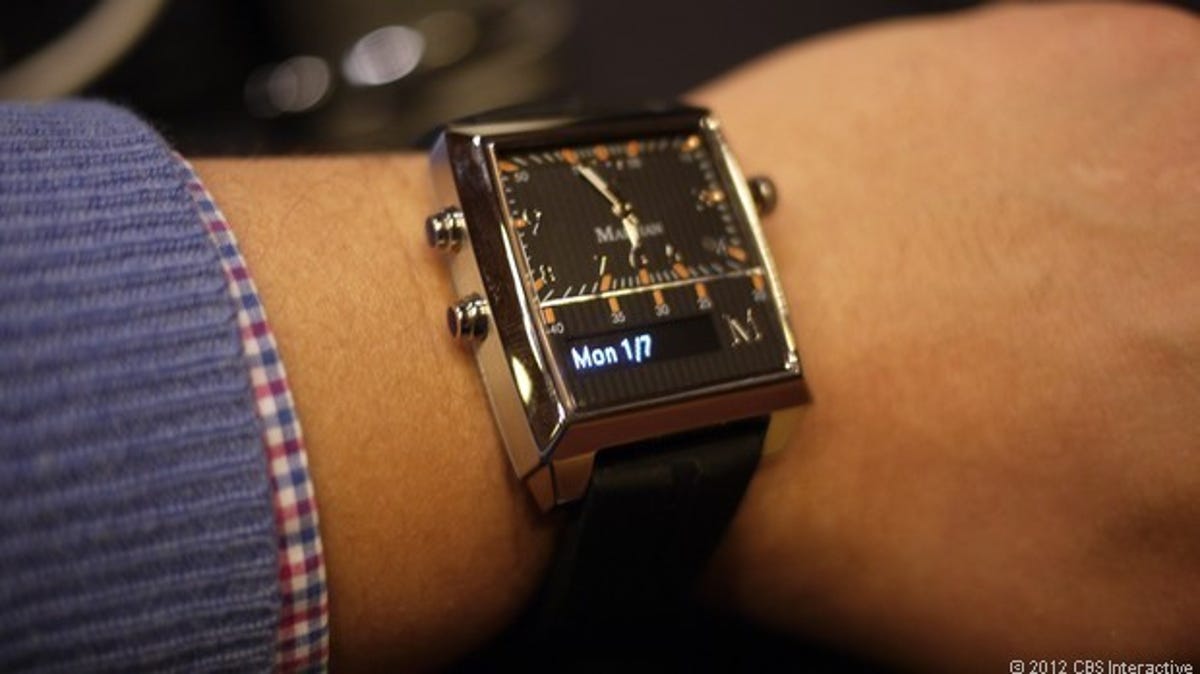Ever since the sixth-generation iPod Nano, lots of people have thought that Apple making its own branded watch is not merely a smart potential move but simply a matter of time. No matter what some have recently argued, I doubt, however, that today’s Apple is hungry enough to create the fabled iWatch device.
I’ve been covering the technology beat long enough to feel, no, smell certain shifts in the gadget market. I’m talking about those cycles when a new product category springs up from nowhere and first seems like a completely goofy notion. Soon after, the segment really heats up with scores of companies jumping into the fray to make a quick buck.
Related stories
- Why my digital watch is an iPod Nano
- Building an iWristwatch: What smartwatches need next
- Pebble watch is the smartest timepiece ever (hands-on)
Traditionally, if Apple senses a legitimate opportunity it steps in at the right moment after figuring out the secret to success and sucks the air right out of the market. Tablets and MP3 players existed well before Apple launched the iPod and iPad, but their arrival completely transformed the playing field. Remember music players from Creative Labs, Rio, or even Microsoft’s clunky Windows Tablet PCs?
I’m getting the same tingling sensation right now from smartwatches. At CES in January, the sleeper hit of the show was wearable tech, essentially devices you could strap or clip to yourself as you would an accessory or article of clothing. A lot of smartwatches, fitness bands, or some hybrid of the two, were talked up at the conference.


CNET
These included everything from the long-awaited and crowd-funded Pebble and the Dick Tracy/007-inspired Martian Passport Watch to the Fitbit Flex fitness tracker and the Basis Band. When you factor in the success of the Nike FuelBand, Nike being a company Apple has partnered with in the past to create fitness products, I’d say the time is ripe for Apple to swoop in for the kill.


Brian Bennett/CNET
This is a move the Cupertino, Calif.-based company used to accomplish without breaking a sweat. Apple has the knack of catching the competition completely flat-footed, surprising since many already had a big head start. The iPhone is a perfect example. Smartphones had existed for years but the iPhone sounded the death knell for Microsoft’s struggling Windows Mobile products — trust me, I was saddled with a T-Mobile Wing at the time. The Sidekick and a legion of keyboarded feature phones suffered the same fate.
I’m afraid Apple hasn’t demonstrated its signature ferocity in recent years. We haven’t seen a truly disruptive product from the company since the first iPad. Every noteworthy hardware release since then has been evolutionary and incremental, not transformative. The iPad Mini is simply a smaller iPad, and the iPhone 5 essentially increased the screen from 3.7 to 4 inches. Its A6 processor is also dual-core where many Android CPUs have gone to full quad-core and it received 4G LTE well after its rivals.
What Apple needs here is true out-of-the-box action to quell the doubters at large and on Wall Street. A serious example of nonlinear thinking that matches the creation of the iPod, iPhone, and iPad. Something that would merge multiple gadgets and applications into something entirely new or perhaps clean up the confused mess other manufacturers tout as useful gadgets. Something like a fabulous, shiny Apple iWatch.



